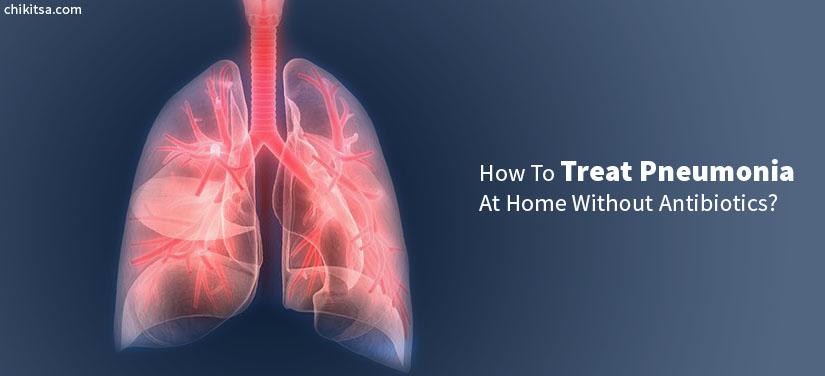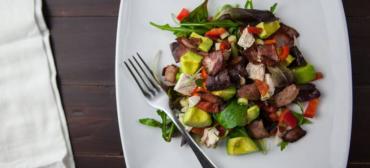How To Treat Pneumonia At Home Without Antibiotics?
Overview
Pneumonia is one of the leading causes of morbidity and mortality worldwide. It is responsible for 15% deaths among children under 5 years of age. Worldwide, almost 2400 children under 5 years of age die each day due to pneumonia.
In 2013, the World Health Organization reported pneumonia as the 2nd major cause for deaths all over the world. Our respiratory system has rich defence mechanisms to fight against infections. These are
- Nasal Hair and Cilia – These are present throughout the respiratory tract. They trap foreign bodies, allergens and smaller particles and prevent them from entering the airways.
- Mucous membrane – Mucous membrane lines the entire respiratory tract. Mucous traps particles in microorganisms and foreign bodies which enter the respiratory system.
- Cough – This reflex action causes expulsion of trapped organisms or foreign bodies in order to clear the airway.
- Airway Secretions – These contain antimicrobial peptides and antioxidants which neutralize and kill microorganisms with the help of inflammatory cells.
The windpipe through which we breathe in the air is called the Larynx. This descends lower to be called the Trachea. The airway which conducts air to the alveoli is called the Bronchus. Bronchus further divides into right and left bronchi for each lung respectively. Bronchi divide into smaller airways within the lungs called Bronchioles and end in multiple tiny air-sacs called Alveoli.
What is Pneumonia?
Pneumonia is an acute inflammation of the lung tissues involving the distal airways including bronchioles, alveolar ducts and alveoli.
Pneumonia Tends to Occur More Easily in Certain Groups of People
- Having altered consciousness. Ex: seizures, meningitis, heavy metal toxicity, strokes.
- Having depressed cough and glottis reflex.
- Impaired mucociliary transport. Ex: Kartagener’s Syndrome, Cilia Dysmotility Syndrome and Young’s Syndrome.
- Impaired alveolar macrophage function (Macrophages are a type of inflammatory cells)
- Endo Bronchial Obstruction. Ex: Foreign bodies or Tumors
- Immuno Compromised Patients
Types of Pneumonia
| Based on Part of Lung Affected | Lobar Pneumonia Broncho Pneumonia or Lobular Pneumonia Interstitial Pneumonia |
| Based on Circumstances | Community Acquired Pneumonia Hospital Acquired Pneumonia Ventilator Associated Pneumonia |
| Based on Causative Organisms | Bacterial Pneumonia Viral Pneumonia Pneumonia From Other Etiologies |
Causes of Pneumonia
Although pneumonia can occur due to infection with any microorganisms, the most commonly identified causative organisms are
- Streptococcus Pneumonia – The most common cause of pneumonia in children.
- H.influenzae – Second most common cause of pneumonia and the most common virus causing pneumonia.
- Respiratory Syncytial Virus – On of the most common causes of pneumonia in adults.
Maximum cases of in-patient and out-patient department and intensive care units are of unknown etiology. Pneumonia can be spread from one person to another when an infected person coughs or sneezes. Despite having such potent defence mechanisms, pneumonia can occur when pathogens gain entry into the lungs by one of the following routes
- Trauma
- Inhalation
- Aspiration
- Spread by blood from a distant source of infection
- Direct spread from an adjoining site
Some Major Causative Factors for Pneumonia
- Cigarette Smoking – Damages epithelial cells of lungs and damages cilia
- Alcohol Consumption – Depresses cough reflex
- Upper respiratory tract infections
- Old Age – Inability to swallow and reduced immunity
- Corticosteroid Therapy
- Recent Influenza Infection
- Pre Existing Lung and Cardiac Diseases
- Indoor Air Pollution
- Immuno Compromised - HIV, Patients on Chemotherapy, Transplant Patients
Signs and Symptoms of Pneumonia
- Cough with expectoration
- Fever with chills
- Difficulty in breathing
- Loss of appetite, body ache, nausea, vomiting and weight loss
- Wheezing
- Chest pain on coughing or breathing and not related to any cardiac abnormality
How to Treat Pneumonia at Home Without Antibiotics?
Because of increasing awareness about the side effects of antibiotics and painkillers, people seek treatment for pneumonia at home without antibiotics
- Water – Drinking plenty of water flushes out toxins from the body and also helps to stay hydrated.
- Ginger – You chew on a small piece of fresh ginger or drink it as a tea. Ginger aids in digestion and stimulate appetite. In pneumonia, it works as a bronchodilator to free up the mucous from lungs.
- Lemon – In ancient times, the lemon was used as a cleanser, preservative for food and as a means to treat illnesses. Lemons are rich in vitamin C and flavonoids which aid in healing and reducing inflammation. Lemon water can be used as a home remedy to treat pneumonia without antibiotics. Lemon boosts immunity and also helps to improve hydration.
- Garlic – Although it leaves a strong odor in mouth, it contains many trace elements which speed up recovery. It is rich in anti-oxidants which are anti-inflammatory. Although treating pneumonia at home without antibiotics may seem easy, pneumonia can have some serious complication like accumulation of fluid in lungs, lung abscess and acute respiratory failure. If the causative organism is strong enough, it can also spread to other organs of the body.
- Peppermint Tea removes bad breath which may develop because of the infection. It also boosts immunity and reduces inflammation of respiratory passages. Peppermint improves digestion as well.
- Eating a well-balanced diet is important for recovery.
- It is important to take adequate rest to help your body heal itself faster.
- Gargling with warm salt water removes bacteria and sputum from the mouth and throat. It also prevents build up of bacteria.
- High fever for long durations is unhealthy for the body. That’s why it is important to have paracetamol for fever. Cold sponging helps to reduce body temperature more rapidly.
- Hot or warm beverages relive shortness of breath and relax airways.
- Inhaling steam with fresh aloe vera gel works as a natural bronchodilator and expectorant.
- Warm turmeric milk is a natural antibiotic. Turmeric also boosts immunity as it is rich in anti-oxidants.
How To Prevent Pneumonia
Preventive measures can be taken to avoid pneumonia. These preventive measures can also be taught to underprivileged and high-risk group people as steps towards reducing the incidence of pneumonia.
- Consumption of clean food and clean drinking water.
- Adequate nutrition and balanced diet along with exercise maintains immunity.
- Cutting out on smoking and alcohol.
- Avoiding exposure to air pollution both indoors and outdoors.
- Wash your hands before each meal. Use a sanitizer if soap is not available
When To See A Doctor?
- Altered consciousness or confusion
- Age more than 65 years
- Increased respiratory rate and low blood pressure
- If you notice sputum darker in color or blood
- Persistent high grade fever
- Inability to retain anything in the stomach because of persistent nausea and vomiting










